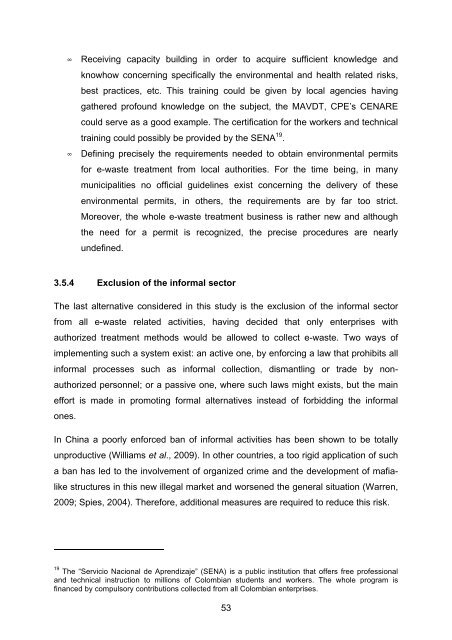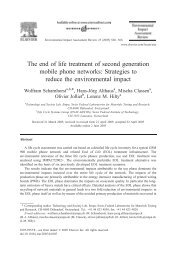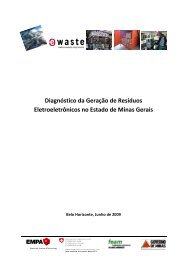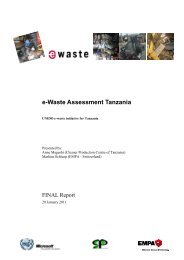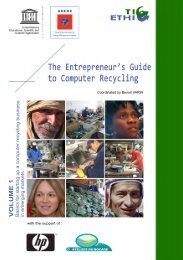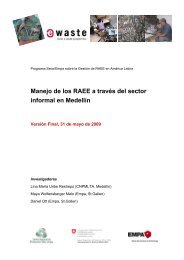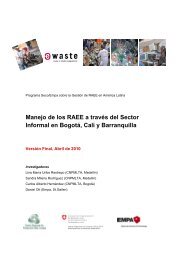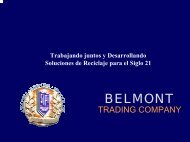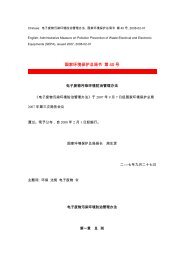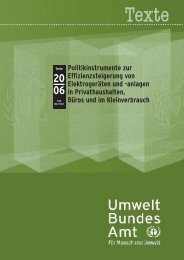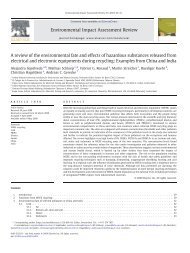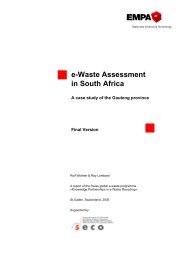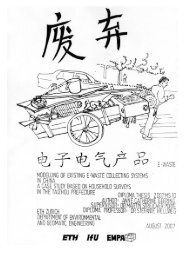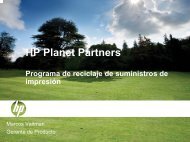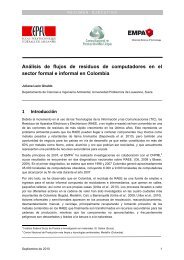10 07 29 Master thesis Juliana Leon - e-Waste. This guide
10 07 29 Master thesis Juliana Leon - e-Waste. This guide
10 07 29 Master thesis Juliana Leon - e-Waste. This guide
Create successful ePaper yourself
Turn your PDF publications into a flip-book with our unique Google optimized e-Paper software.
• Receiving capacity building in order to acquire sufficient knowledge and<br />
knowhow concerning specifically the environmental and health related risks,<br />
best practices, etc. <strong>This</strong> training could be given by local agencies having<br />
gathered profound knowledge on the subject, the MAVDT, CPE’s CENARE<br />
could serve as a good example. The certification for the workers and technical<br />
training could possibly be provided by the SENA 19 .<br />
• Defining precisely the requirements needed to obtain environmental permits<br />
for e-waste treatment from local authorities. For the time being, in many<br />
municipalities no official <strong>guide</strong>lines exist concerning the delivery of these<br />
environmental permits, in others, the requirements are by far too strict.<br />
Moreover, the whole e-waste treatment business is rather new and although<br />
the need for a permit is recognized, the precise procedures are nearly<br />
undefined.<br />
3.5.4 Exclusion of the informal sector<br />
The last alternative considered in this study is the exclusion of the informal sector<br />
from all e-waste related activities, having decided that only enterprises with<br />
authorized treatment methods would be allowed to collect e-waste. Two ways of<br />
implementing such a system exist: an active one, by enforcing a law that prohibits all<br />
informal processes such as informal collection, dismantling or trade by nonauthorized<br />
personnel; or a passive one, where such laws might exists, but the main<br />
effort is made in promoting formal alternatives instead of forbidding the informal<br />
ones.<br />
In China a poorly enforced ban of informal activities has been shown to be totally<br />
unproductive (Williams et al., 2009). In other countries, a too rigid application of such<br />
a ban has led to the involvement of organized crime and the development of mafialike<br />
structures in this new illegal market and worsened the general situation (Warren,<br />
2009; Spies, 2004). Therefore, additional measures are required to reduce this risk.<br />
19 The “Servicio Nacional de Aprendizaje” (SENA) is a public institution that offers free professional<br />
and technical instruction to millions of Colombian students and workers. The whole program is<br />
financed by compulsory contributions collected from all Colombian enterprises.<br />
53


